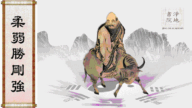【新唐人2012年10月19日讯】《鬼子来了》是中国大陆导演姜文1998年拍摄的影片。这部电影在2000年5月21号获得法国第53届“戛纳电影节”评审团大奖;2002年,又摘下日本“每日电影奖”最佳外语片大奖,在日本还引发了对战争和人性的深沉思考。但是由于不符合中共当局的主旋律,遭到中共广电总局封杀,没有能够在中国上映。日前,“北京电影学院”教授苏牧在博客上,披露了当年广电总局对这部影片的“审查意见书”。接下来一起去看看审查内容都说了什么?
这份审查意见书说,影片一方面没有表现出在抗日战争大背景下,中国百姓对侵略者的“仇恨和反抗”,反而突出展示和集中夸大了“愚昧、麻木、奴性的一面”,另一方面,不仅没有充分暴露日本军国主义的侵略本质,反而突出渲染了日本侵略者耀武扬威的猖獗气势,由此导致影片的基本立意出现严重偏差。
《鬼子来了》是以一种独特的视角,来反映抗日战争时期,河北一名小村农民和日本兵之间的一段故事。故事取材于作家尤凤伟的小说《生存》,拍成电影后改动较大。影评人李祥瑞说,原着着重描写“军民奋勇抵抗侵略”,而影片则提炼“农民愚昧”、“战争荒诞”一面,笔锋直指国人弱点,将更多忧患意识注入影像化的故事中。原著作者尤凤伟打官司指控电影对原小说作了扭曲窜改。但李祥瑞认为,其实正因为姜文导演一番大刀阔斧的改动,影片才有了挖掘人性的深度。
大陆诗人和文化评论家叶匡政称赞《鬼子来了》是1949年以来,中国所拍的最好影片。
文化评论家 叶匡政:“第一,他的片子有一种黑色幽默的性质。第二,他有对国民性的反思。在中国的抗战电影里面过去是没有过的。第三,他展示了一种抗日当年真实的境况。因为中国的抗日电影一直是在一种非常简单的意识形态,比如仇恨,复仇,英雄或敌人,这样一个简单的两元化框架里面展示故事的。”
叶匡政说,大陆拍摄的所有跟抗日有关的电影,比如《地道战》和《小兵张嘎》,都是对抗日战争简单化的意识形态展示。但是《鬼子来了》不同,相对过去的抗战电影来说,非常真实。
叶匡政表示,文学和艺术一定是多元化的表达。有展示愚昧的,有展示立场坚定的,有不同的角度。而每个国家的历史中,有部分历史让人骄傲,有部分历史也让后代感到羞愧。
叶匡政:“在目前的意识形态下,我们通常认为只有展示这个国家让人骄傲的历史,才是所谓的优秀电影,其实并不是这样。其实有的时候展示一个民族苦难的历史,或一个民族的麻木和愚昧,或者展示一个民族经历的黑暗,其实有时候更重要。人们对这种麻木,苦难,愚昧的历史了解的越多,他的良知被泯灭的可能性越小,他才能更好的唤起他对良知和世界真理的渴望。”
叶匡政表示,一百年来,中国历史上有大量的重大历史事件,但是大陆的文艺作品一直没有展现这一百年来中国人的真实感受,尤其苦难。
而《鬼子来了》审评意见书指出的影片许多所谓“严重偏差”,其中一条是:国民党将领召集百姓聚会并发表受降讲话时说:“只有国军才是投降日军唯一合法的接收者。”意见书认为,这个情节,“没有达到批判和讽刺国民党的效果”。有网友表示,这恐怕是这部电影最触痛共产党的地方。
采访编辑/秦雪 后制/王明宇
Movie “Devils on the Doorstep” Banned
The movie “Devils on the Doorstep” was directed
by Jiang Wen in mainland China in 1998.
It received the Grand Jury Award
at the Cannes Film Festival on May 21, 2000.
In 2002, it won the best foreign language movie
at Mainichi Film Awards in Japan.
The win triggered deep thinking within the Japanese people
regarding the war.
However, the film doesn’t comply with the Chinese
Communist Party’s (CCP) rule, and was banned in China.
Recently, Prof. Su Mu at Beijing Film Academy revealed
a report by China State Administration of Radio Film and Television (SARFT).
Let’s take a look.
SARFT’s report claimed that in the film, Chinese people
don’t show enough “hatred and revolt” towards the Japanese.
And instead, they are shown to display
ignorance, apathy and servility.
SARFT also said that the film doesn’t correctly display the
cruelty of the Japanese army.
The film highlights the Japanese flaunting their invasion,
thus the fundamental direction of the film is “incorrect.”
The story is shown from a unique angle.
It tells of the ordeal between a Chinese villager and Japanese
soldiers in a Hebei village during the Anti-Japanese war.
The story is based on the novel “Survival,”
written by You Fengwei.
The movie has a lot of changes
compared to the original novel.
Film critic Li Xiangrui said that the original story emphasizes
Chinese soldiers and civilians courageously resisting the Japanese invasion.
However, the movie picked up villagers’ ignorance of the war,
directly pointing out the Chinese people’s weaknesses, and bringing more sense of apprehension into the story.
The author of the novel claimed
that the film distorted his original work.
However, Li Xiangrui believes that because Jiang Wen made
this brave changes, the movie is able to reveal inside stories.
Ye Kuangzheng, a poet and cultural commentator in China,
praised ‘Devils on the Doorstep’ as the best movie since 1949.
Ye Kuangzheng: “First, the film has this black humor nuance.
Second, it is a reflection of national characters.
This has never been shown in past anti-Japanese war films.
And third, it displays the true war situation at that time.
Chinese anti-Japanese movies usually have simple ideology,
showing stories of hatred, revenge, heroes and foes, etc.”
Ye Kuangzheng said that all anti-Japanese war’ films, like
“Tunnel Warfare,” and “Zhang Ga, The Soldier Boy” display simple ideology towards the anti-Japanese war.
However, “Devils on the Doorstep” is different, it is very
genuine and its’ story compares to those of similar films.
Ye Kuangzheng said that literature and art
must show a wide range of expressions.
They should show different angles,
displaying ignorance or a firm stance.
Its like each country’s history –
some can be proud of their past, others can be ashamed.
Ye Kuangzheng: “According to current ideology,
we usually only display what we are proud of.
The film can be claimed as outstanding,
but the facts behind it are not true.
Sometimes to show the history of suffering or a nation’s
apathy and ignorance; or to display a nation experiencing hardship, are more important.
The more there is to understand the history of people’s apathy,
suffering and ignorance, the less humanity they will lose.
Thus, the desire for the truth and conscience
can be awakened.”
Ye Kuangzheng said that in over a century,
many important historical events took place in China.
However, the literary works in mainland China didn’t reflect
Chinese people’s true feelings, particularly their suffering.
However, according to SARFT, “Devils on the Doorstep”
has seriously gone astray.
One of the issues is that a Kuomindang (KMT) general
declares that only the KMT can legally accept the surrender of the Japanese troops.
SARFT claimed that this scene didn’t have the effect
of criticizing KMT.
Some netizens commented that this is maybe
the most painful for the CCP issue with this movie.




























